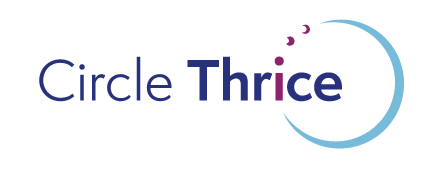This post is an expansion of part of this earlier post on setting big goals. If you are trying to figure out what big thing to pursue, I still recommend that post (plus it has a nifty Dr. Horrible theme). This post is about just one important piece of that… focusing on what you do well.
The idea is to play to your strengths and talents. Not because working on your weaknesses is bad but because it’s not the best use of your energy. And for a really big goal, you need all the energy you can get. Being athletic has never been a strength of mine, but in looking at ways to be more fit, I need to focus on things I can do. Joining a sports team would be terrible idea, but an activity where I only compete with myself and have a way of seeing progress… that plays to my strengths.
Lots of business and life coaches suggest playing on strengths, so I went hunting for actual research that backs it up. And there is plenty. Plus doing a lot of what you suck at just kind of sucks. It’s not the effort (you can be good at things that are hard), it’s the endless grind. It’s demoralizing.
How do you figure out what you’re good at?
In case you have no clue what you’re good at, take a look at this article by the Harvard Business Review. It describes a process called the Reflected Best Self (RBS) exercise. Quickly, the stages are as follows:
- Ask a bunch of people who know you what you’re good at.
- Look for themes in the feedback.
- Write a description of yourself highlighting your strengths.
- Create a description of your goal or dream life based on this description.
Sometimes you see something and you just know that it’s the right thing for you to do. That’s what I experienced when I saw the conference listing and I convinced my boss to send me. And everything about the trip just reinforced my instinct.
First, there was the great group of magicians I had the pleasure of connecting with over dinner. Not only did we have a great time, but they are planning on meeting again, which makes me feel very happy.
Second, there were some particular courses and events that were exactly what I needed right now, such as the Project Management and Stoicism session (seriously the thing I was looking forward to most in the entire conference).
Finally, there was an opportunity to take this interesting CliftonStrengths assessment. The first 450 people to show up the morning of the first day got to take the assessment for free and have either an individual or group coaching session based on the results. I really like the way the assessment was organized. It was easy to take and the results came immediately online. It ranks you on 34 skills in four areas and gives you back your top five strengths. I found the results really interesting and my boss thought they reflected my strengths as well.
The coaching session was also good. For example, described a workplace issue, and she talked me through how I could leverage the things I was good at in order to meet the challenge. It was incredibly useful and insightful. Of course, no one minds hearing about all the stuff they’re awesome at, but the thing that really struck me was how to leverage those skills to deal with the things that aren’t so easy.
Because let’s be honest. Playing to your strengths is great in theory, but what if it’s your weaknesses that keep messing you up? Say you are great at learning and focus, but not so good with empathy and folks at work find you annoying because you don’t seem to care about them. Unless you are going to find a job in a fire watch tower, you are probably going to have to deal with other people. Maybe you’ll never be that good at putting yourself in someone else’s shoes, but with your knack for learning, you can read about how to put people at ease and practicing listening skills with your laser-like focus.
Or let’s say that you are top notch at finding creative solutions to problems, but have a hard time focusing and getting your ideas in writing. No one will even know how awesome you are if you can’t hone and share your vision. So use your creative problem solving to experiment with reducing distractions (maybe you arrange to work from home sometimes, but instead you go to the most boring place you can think of to really concentrate) and communicate your ideas (how about a short video or chart-heavy slide deck to express your cool new ideas?).
In the end, your strengths make up an important part of who you are. And sometimes we have a harder time identifying them than our weaknesses. After all, do you spend more time contemplating how awesome you are or beating yourself up over how much you suck? Yeah, I thought so — me too!
By the way, you can take the basic assessment for like $20 (I’m in no way associated and certainly don’t make any money from it, I just thought it was interesting and useful). I can see using it to identify a new career path, set and meet goals, and find solutions to life’s challenges. Because we’re all awesome, just at different things.



